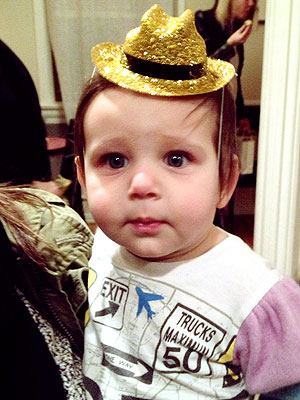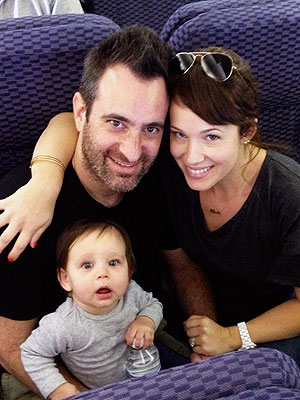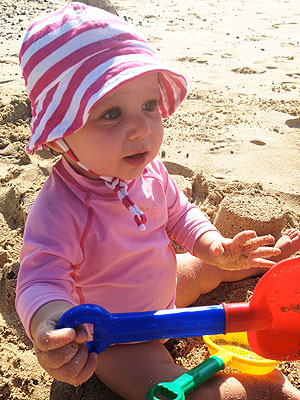On March 4, 1913, Woodrow Wilson took the oath of office. Nearly 100 years later, Barack Obama will take that same oath.
The U.S. presidential inauguration looks a tad different than it did a century ago. In 1913, women still did not have the right to vote and Wilson rode to the Capitol in a horse-drawn carriage. And don’t expect to see President Obama wearing a silk top hat like Wilson either.
[More from Mashable: Watch Every President’s Inauguration Since Reagan in 36 Seconds]
Thanks to the digital archiving of government images, zipping through 100 years of presidential history doesn’t even require a trip to the library. We’ve compiled the most memorable photographs and videos taken at presidential inaugurations since 1913 for a scrollable history lesson.
[More from Mashable: The Letters Kids Wrote to Obama About Gun Control]
If you like your history well-aged, then there’s also a special gallery at the bottom featuring images from inaugurations that occurred before 1913 — including those of Abraham Lincoln, Theodore Roosevelt and Ulysses S. Grant.
Woodrow Wilson, March 4, 1913
“President-elect Wilson and President Taft, standing side by side, laughing, at White House prior to Wilson’s inauguration ceremonies” Image courtesy of Library of Congress
Image courtesy of Library of Congress
Image courtesy of Library of Congress
Woodrow Wilson, March 5, 1917
Image courtesy of Library of Congress
“Telegram from Evangeline Booth, Commander of the Salvation Army” Image courtesy of Library of Congress
Warren G. Harding, March 4, 1921
“Woodrow Wilson, Warren G. Harding, Philander Knox and Joseph Cannon, in convertible” Image courtesy of Library of Congress
Image courtesy of Library of Congress
Calvin Coolidge, March 4, 1925
“President Coolidge, Mrs. Coolidge and Senator Curtis on the way to the Capitol” Image courtesy of Library of Congress
Herbert Hoover, March 4, 1929
Image courtesy of Library of Congress
Franklin D. Roosevelt, March 4, 1933
Inaugural Program, Inauguration. Franklin D. Roosevelt President of the United States. John N. Garner Vice President of the United States. Image courtesy of Library of Congress
Image courtesy of Library of Congress
Franklin D. Roosevelt, January 20, 1937
Image courtesy of Library of Congress
Image courtesy of Library of Congress
“Ticket for the 1937 inauguration, the first to take place on January 20th.” Image courtesy of FDR Library
“Eleanor Roosevelt poses in her inaugural gown at the White House.” Image courtesy of FDR Library
Franklin D. Roosevelt, January 20, 1941
“Franklin and Eleanor Roosevelt riding in an open car, returning to the White House from FDR’s third inauguration.” Image courtesy of FDR Library
Excerpt from home movie of FDR driving and walking with assistance to take the Oath of Office on January 20, 1941.
Franklin D. Roosevelt, January 20, 1945
Image courtesy of Library of Congress
“Crowd stands in snow for inauguration” Image courtesy of Library of Congress
Harry S. Truman, January 20, 1949
“Truman and Barkley during Inaugural parade.” Image courtesy of Truman Library
Dwight D. Eisenhower, January 20, 1953
“Ike responds to cheers of crowd.” Image courtesy of Library of Congress
“With smiles and a wave, President Harry Truman and his successor, Dwight D. Eisenhower, leave White House in an open car on way to Capitol for inauguration ceremonies.” Image courtesy of Library of Congress
Dwight D. Eisenhower, January 21, 1957
“President Eisenhower waves to the crowd” Image courtesy of Eisenhower Library
“Dwight Eisenhower and Richard Nixon watching inaugural parade with Anne & David Eisenhower and Julie & Tricia Nixon” Image courtesy of Eisenhower Library
“Dwight and Mamie Eisenhower attend the Inaugural Ball with John and Barbara Eisenhower” Image courtesy of Eisenhower Library
John F. Kennedy, January 20, 1961
Image courtesy of National Archives
“President-elect John F. Kennedy shakes hands with Father Richard J. Casey, the Pastor, after attending Mass at Holy Trinity Church … prior to inauguration ceremonies.” Image courtesy of Library of Congress
Lyndon B. Johnson, January 20, 1965
“President Lyndon B. Johnson, Lady Bird Johnson, Lynda Bird Johnson, and Luci Baines Johnson preparing for Inauguration ceremonies.” Image courtesy of LBJ Library
Image courtesy of Library of Congress
“Secret service agents try to hold back the crowds that surge forward to watch President Johnson dance with the First Lady at the inaugural ball at the National Guard Armory” Image courtesy of Library of Congress
Richard M. Nixon, January 20, 1969
Image courtesy of Library of Congress
“President and Mrs. Nixon waving to the crowd from the Presidential limousine in the inaugural motorcade” Image courtesy of Library of Congress
Richard M. Nixon, January 20, 1973
Image courtesy of White House
Image courtesy of Library of Congress
Jimmy Carter, January 20, 1977
Image courtesy of Jimmy Carter Presidential Library
Image courtesy of Library of Congress
Ronald Reagan, January 20, 1981
Image courtesy of Library of Congress
Image courtesy of Library of Congress
Ronald Reagan, January 21, 1985
Image courtesy of Reagan Library
“1985 Inaugural Ball: President and Mrs. Reagan in National Air and Space Museum” Image courtesy of Smithsonian
George H. W. Bush, January 20, 1989
Image courtesy of Smithsonian
“1989 Presidential Inaugration, George H. W. Bush, Opening Ceremonies, at Lincoln Memorial” Image courtesy of Smithsonian
Bill Clinton, January 20, 1993
“While the Clintons and Gores watch, Chelsea Clinton rings a replica of the Liberty Bell during festivities kicking off the Clinton/Gore 1993 Inaugural events.” Image courtesy of Smithsonian
“George Bush and Bill Clinton shake hands just after the inaugural ceremonies at the U.S. Capitol.” Image courtesy of Smithsonian
Image courtesy of Smithsonian
Bill Clinton, January 20, 1997
Image courtesy of Smithsonian
Image courtesy of Smithsonian
George W. Bush, January 20, 2001
Image courtesy of White House
Image courtesy of Library of Congress
George W. Bush, January 20, 2005
Image courtesy of White House
Image courtesy of White House
Image courtesy of White House
Barack Obama, January 20, 2009
Image courtesy of Master Sgt. Cecilio Ricardo, U.S. Air Force
“President Barack Obama is given the Oath of Office for a second time by Chief Justice John G. Roberts” Image courtesy of Pete Souza/White House
“President Barack Obama and First Lady Michelle Obama share a private moment in a freight elevator at an Inaugural Ball” Image courtesy of Pete Souza/White House
“President Barack Obama and First Lady Michelle Obama ride in a golf cart at an Inaugural Ball” Image courtesy of Pete Souza/White House
BONUS: Pre-1913 Presidential Inaugurations
Inauguration of Abraham Lincoln, March 4, 1861
Image courtesy of Library of Congress
Click here to view this gallery.
This story originally published on Mashable here.
Tech News Headlines – Yahoo! News
Title Post: 100 Years of U.S. Presidential Inaugurations
Url Post: http://www.news.fluser.com/100-years-of-u-s-presidential-inaugurations/
Link To Post : 100 Years of U.S. Presidential Inaugurations
Rating:
100%
based on 99998 ratings.
5 user reviews.
Author: Fluser SeoLink
Thanks for visiting the blog, If any criticism and suggestions please leave a comment
















